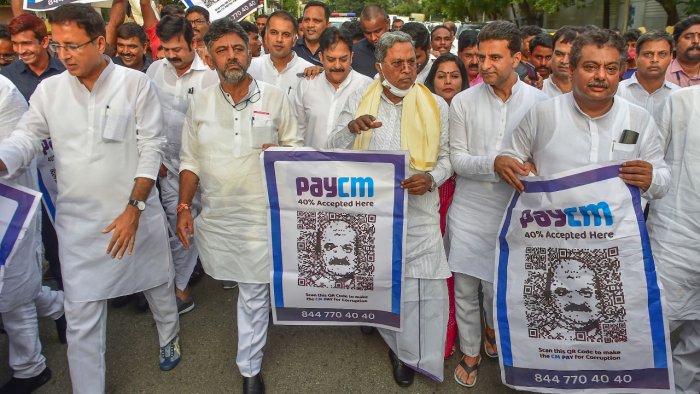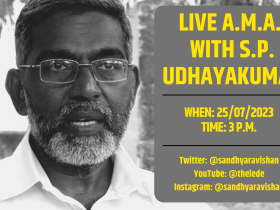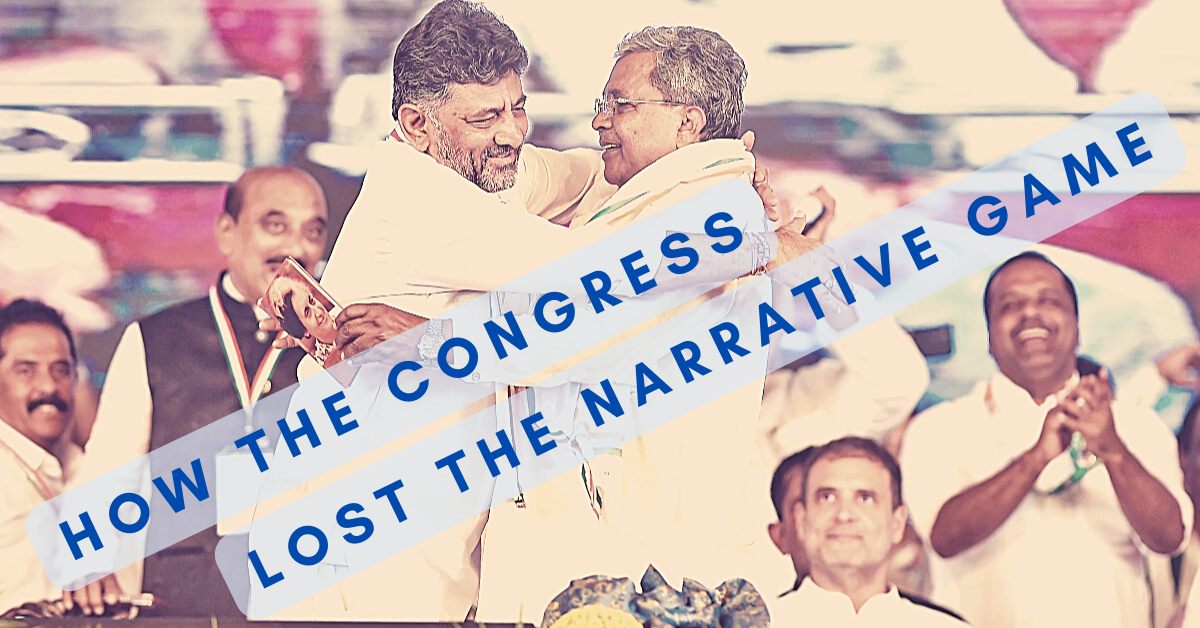By Sandhya Ravishankar
As the election campaign enters the final leg in Karnataka, a high voltage slanging match is on. Hogging the headlines are the abusive barbs traded between the Congress and the BJP – with AICC President Mallikarjun Kharge calling Prime Minister Narendra Modi a “poisonous snake”, and Basangouda Patil Yatnal (Vijayapura City MLA of the BJP) in turn calling former Congress President Sonia Gandhi a “vishakanya” (poisonous woman).
As both parties express outrage against each other, Prime Minister Narendra Modi has launched his blitzkrieg campaign in Humnabad. “The Congress has abused me 91 times so far,” he said at a rally in Humnabad. “If only Congress had not wasted their time on a dictionary of abuses, if they had used that time on good governance, if they had encouraged their karyakartas, they would not be in such a sorry state today,” he added.
Modi’s rallies are expected to give the BJP the final push ahead of a crucial election. These rallies come a few weeks after the BJP announced their candidate list, delayed in order to avoid rebellion from within.
The Congress’ Narratives
Looking back, since October 2022 when the Congress kickstarted their election campaign, the party’s narratives have struggled to stay afloat.
The curious nature of the Congress campaign is two-fold – (1) the party picked up ‘corruption’ as a narrative; and (2) the party chose many aspects of the DMK campaign of 2021 and added them to its kitty.
But Karnataka is not Tamil Nadu and the announced freebies don’t seem to have many takers.
But let us come back to the beginning.
In October 2022, the 40% Sarkara campaign was launched, with the Congress berating the BJP government on alleged corruption cases. But this campaign flopped. It appears there were not too many takers for the issue of corruption.
Shortly thereafter, the Congress launched the PayCM campaign.

The PayCM campaign was a wet blanket from the beginning. While it got a lot of publicity in the media, the message did not enthuse the voters either. It fizzled out soon after it started.
In fact, Congress state president DK Shivakumar acknowledged that the narratives had fizzled out, during his interview to The Lede.
The third big mistake that the Congress is making is the promise of freebies in the state – an approach that is largely disliked by Karnataka voters.
The Congress has given some ‘guarantees’ in the state – Rs 2000 monthly dole for women; Rs 3000 monthly dole for graduates who are unemployed; Rs 1500 for diploma holders who are unemployed; and free bus rides for women in government transport.
DMK-Congress: Matching Manifestos?
Considering that the Congress ‘guarantees’ are almost entirely lifted from the template set by the DMK in 2021, let us take a look at the status of the promises made by Tamil Nadu’s ruling party.
The party had promised Rs 1000 monthly dole for women ahead of the Assembly election in 2021. Almost two years after coming to power, one crore Tamil Nadu women are set to receive the first installment in September this year. Rs 7000 crore has been allotted towards the same in the Budget.
While the DMK had not promised dole for unemployed graduates or diploma holders, the party had promised to generate 10 lakh jobs each year and had also promised to form a new State Board of Skill Training and Employment Promotion (STEP). However, the number of jobs created are well below the promised 10 lakh per year, with most investments remaining on paper.
While the free bus rides for women were implemented as soon as the DMK came to power, there were many caveats on which buses women could travel in without paying. Only a fraction of the 9000 government buses were allowed to transport women for free. Worse, a minister even shamed an elderly lady for taking a free ride in a bus.
Costly Promises
Apart from the issues in implementation, the enormous funds needed to fulfill the ‘guarantees’ are a cause for concern. A back of the envelope calculation shows the figures.
- Rs 2000 monthly dole for women means Rs 36,000 crore for 1.5 crore women annually in the state. That works out to Rs 1.8 lakh crore for five years.
- Rs 3000 per month for graduates means Rs 5400 crore per year for 15 lakh graduates per year. Which translates to Rs 27,000 crore for five years.
- The promise of free bus passes for women is quite costly. Assuming approximately 25 lakh travel by bus and spend Rs 20 per day, the government will bear losses of Rs 1825 crore a year. In five years, the total losses incurred by state transport corporations would work out to Rs 9125 crore in five years.
In effect, the Congress party picked the troublesome narrative of corruption in the early stages and failed to convince the voter.
In the fag end of the campaign, they are attempting to confuse and thereby split the Lingayat votes by brandishing constructed Brahmin versus Lingayat conversations, and by trying to portray that Lingayat leaders like BS Yediyurappa have been sidelined in the BJP. The party has also tried to use rebel BJP leaders, Jagadish Shettar and Laxman Savadi, to state that Lingayats have been sidelined by the BJP.
It is not likely that any of these narratives will find their mark.
Doles, promises and mud-slinging have marked the Congress narrative, and the rhetoric has not touched on development of any kind. It is clear that the feedback loop of the Congress has been incomplete at least this election season. They will now have to bank on the native knowledge of each candidate to try and push the party past the finish line.









Leave a Reply